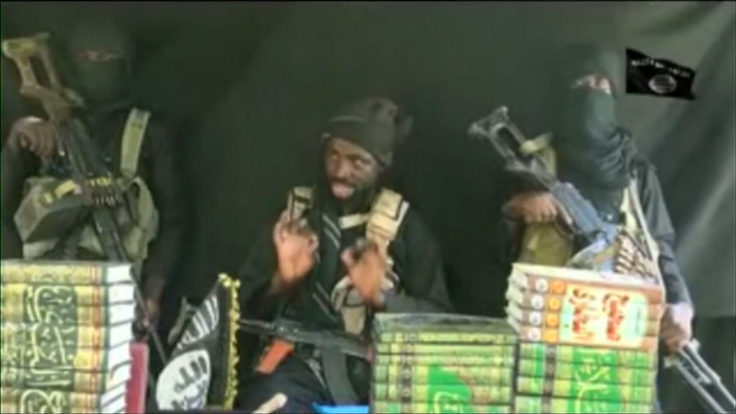Nigerian army denies claims Boko Haram hoisted flag in Borno villages
Army claims Boko Haram attacks in Borno were repelled and no civilian casualty was reported.
The Nigerian army has denied Boko Haram terrorists hoisted their flag in three villages in the restive Borno state. Earlier reports in September claimed the Islamist militants overran Kubirivour, Boftari and Kuburmbalah and killed at least eight people during their raid.
Reports also claimed the militants retook control of the Malam Fatori town, on the Nigeria-Niger border, days after the army had recaptured the town.
However, Colonel Sani Kukasheka Usman, spokesperson for the Nigerian army, denied claims of civilian casualties and said troops and vigilantes managed to repel the terrorists, who fled "with with gunshot wounds."
"It is imperative to state that contrary to rumours flying around some media reports, no life was lost," Usman said. "Additionally, there is no presence of the terrorists in any of the villages talk less of hoisting flags as alleged. The troops have continued to maintain high level of vigilance."
SUSPECTED BOKO HARAM TERRORISTS ATTACK KWANG AND BOFTARI VILLAGESYesterday, at about 5.00pm suspected elements of...
Posted by HQ Nigerian Army on Tuesday, September 27, 2016
Multinational task force against Boko Haram
The latest raid attributed to Boko Haram occurred near the Chibok village, where the terrorists kidnapped more than 200 girls in April 2014.
Although the Chibok abduction was not the first mass-kidnapping carried out by the terrorists, it was the only one that attracted international outrage. It led to the creation of the global movement Bring Back Our Girls which shone a spotlight on the deadly insurgency of Boko Haram that had previously been under-reported.
Who are Nigeria's Boko Haram?
Boko Haram, which has renamed itself Iswap, fights against Western influence in Nigeria and aims to impose its version of Sharia law throughout occupied territories.
The group launches attacks in Nigeria and neighbouring countries in a bid to take control of more territory. Three Nigerian states – Adamawa, Borno and Yobe − have been under a state of emergency since May 2013.
Boko Haram has killed more than 20,000 people since 2009 and was deemed the world's deadliest terror group, surpassing Islamic State in November 2015. Nigeria has also become the world's third-most terrorised country as a result of the group's violent insurgency.
Nigeria is leading an anti-Boko Haram task force that consists of 8,700 troops from Nigeria, Niger, Chad, Cameroon and Benin.
The joint offensive has scored some success, such as the recapture of several territories and the release of thousands of civilians previously held captive.
The Nigerian army and government have often claimed the fight against Boko Haram was over. Nigeria's President Muhammadu Buhari declared a technical victory over the insurgents in December 2015.
However, Boko Haram still carries out attacks, with security experts warning that underlying issues such as disenfranchisement, poverty and strong links with the Islamic State (Isis) will continue to pose major threats to stability in the region.
In August, the Nigerian army's claim it had "fatally injured" Abubakar Shekau, the contested leader of Boko Haram. In September, Shekau is believed to have rejected the claims in an unverified video shared on social media.

© Copyright IBTimes 2024. All rights reserved.






